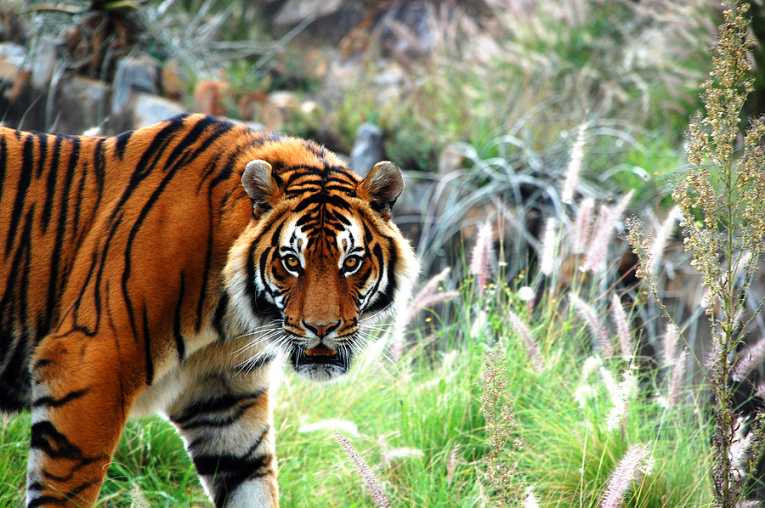The Environmental Investigation Agency (EIA) says that China is undermining its strong stance on tiger poaching by allowing the trade in skins from big cats from 'legal' sources.
Next week, the United Nations Convention on International Trade in Endangered Species (CITES) meets and the Environmental Investigation Agency is urging nations to challenge China's stance on big cat trade. EIA says that China's resumption of a 2007 Skin Registration Scheme - which allows trade in skins from 'legal origins', like animals bred in captivity - is being used as cover by illegal traders.
"Parties to CITES may feel they've been misled as a result of China's tactics," said EIA Tiger Campaign Head Debbie Banks. "What they've failed to grasp is that despite committing to the domestic trade ban on tiger bone, China has refused to make the same commitment over skins or answer questions about how many skins are being traded, but the system is there."
"The Skin Registration Scheme is going in totally the wrong direction. It's doing nothing to actually help tiger and leopard conservation, instead providing a cover for illegal trade and creating a confused consumer market."
The EIA has written to the Chinese Premier, Wen Jiabao to urge action to match pledges made on tiger conservation.
"China is one of the world's leading economies and is always insisting it doesn't need outside help to protect wildlife and stop illegal trade," Banks said. "There can be no more excuses; it has had ample time to strengthen its laws and invest in enforcement operations which target the criminals controlling the trade. If it really wanted to end the trade and save tigers and leopards in the wild, there is a lot more it could do."
EIA has issued a three point call for action asking that:
Top Image Credit: © Welma










